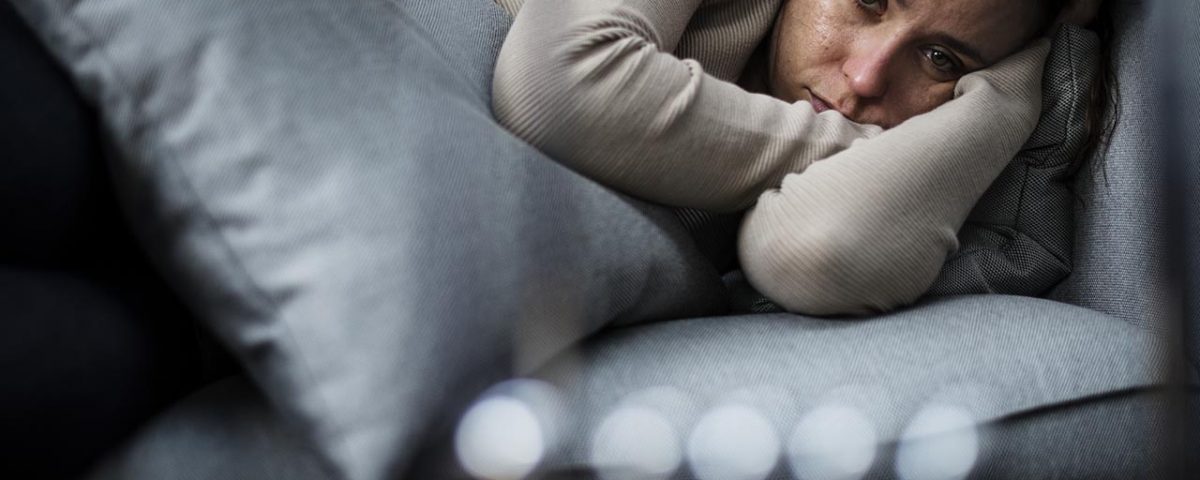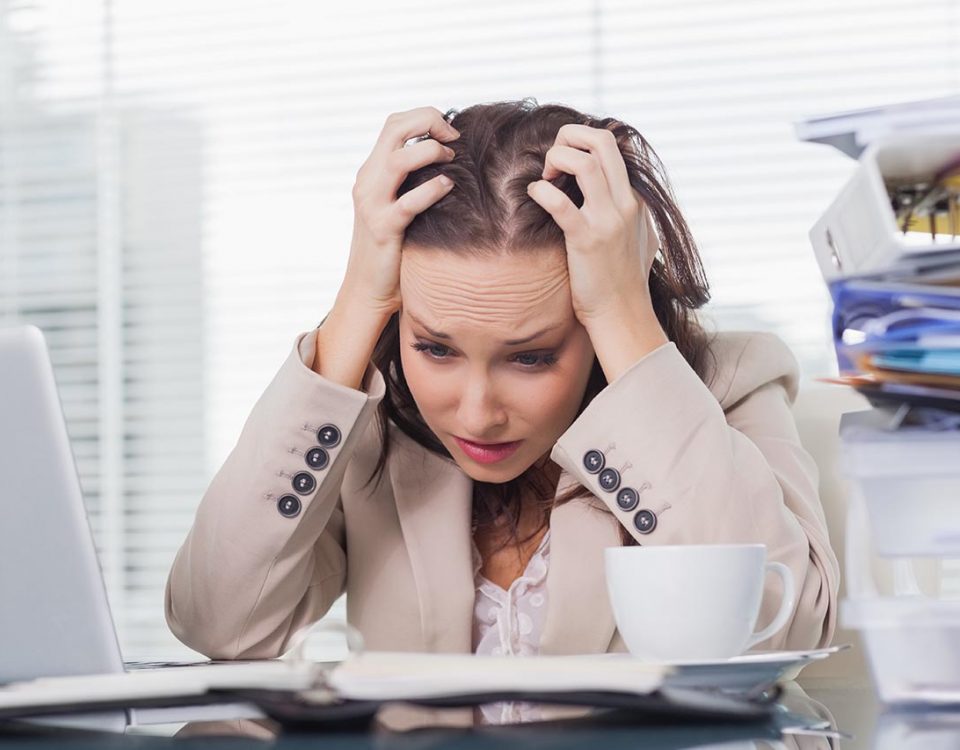


The Dangers of Trauma Bonding & How to Break it
September 8, 2020

How to Teach Your Kids About Mental Health
September 22, 2020How Long Does Depression Last? & Will It Go Away on Its Own?


Depression is a complex and pervasive mental health disorder that is well-recognized for its profound impact on an individual's emotional and psychological well-being. For this reason, there remains a pressing need to address a fundamental question, “How long can depression last?” Understanding the disorder’s duration is crucial for both healthcare professionals and those affected, as it can have profound implications for treatment planning, diagnosis, and overall quality of life. Our mental health treatment providers will delve into the various factors that influence the duration of depression, ranging from its clinical levels to the effectiveness of therapeutic interventions. In doing so, we aim to provide valuable insights into the management and support of individuals battling this challenging condition.
Depression Symptoms
For someone to be diagnosed with depression, they must exhibit at least five depression symptoms once a day for at least two weeks.1 Common symptoms of depression may include:
- Showing less interest in once enjoyable activities
- Frequent feelings of sadness, tearfulness, emptiness, or hopelessness
- Frequent mood swings or angry outbursts, irritability or frustration, even over small matters
- Disturbance in sleep patterns, such as sleeping too much or too little
- Reduced or increased appetite, leading to weight loss or weight gain
- Anxiety, agitation, or restlessness
- Withdrawal from loved ones
- Trouble thinking, concentrating, making decisions, or remembering things
- Frequent or recurrent thoughts of death or suicide
- Unexplained physical ailments, such as back pain or headaches
Keep in mind that not everyone with depression will experience all of these symptoms, and the severity of symptoms can vary from person to person. Additionally, depression can co-occur with other mental health disorders, such as anxiety disorders or substance use disorders, which can further complicate their symptoms. If you or someone you know is experiencing depression symptoms, it is essential to seek help from a professional for a proper mental health diagnosis and treatment plan. Depression is treatable, and early intervention can significantly improve an individual’s quality of life.
What Are the 3 Levels of Depression?
Depression is typically classified into several severity levels to help clinicians assess and treat individuals effectively. The three levels of depression are:
- Mild depression:
- Individuals with mild depression experience some symptoms that may interfere with their daily functioning but can usually continue with their day-to-day activities.
- Common symptoms of mild depression include sadness, low energy, changes in sleep and appetite, and diminished interest in activities.
- Mild depression may be treated with psychotherapy, lifestyle changes, and support from loved ones.
- Moderate depression:
- Moderate depression is marked by more pronounced and persistent symptoms that can significantly disrupt a person's daily life.
- Moderate depression symptoms include a pervasive sense of sadness, lowered self-esteem, trouble concentrating, and disrupted sleep and appetite.
- Treatment typically involves a combination of psychotherapy and medication, such as antidepressants.
- Severe depression:
- Severe depression is the level at which the disorder becomes the most debilitating. At this level, depression symptoms are overwhelming and disabling, often leading to a complete disruption of daily life.
- Individuals with severe depression may experience symptoms such as profound sadness, an inability to perform basic self-care, intense hopelessness, and suicidal thoughts.
- Treatment for severe depression often requires hospitalization, intensive psychotherapy, and medication, including antidepressants and mood stabilizers.
It's essential to understand that depression exists on a spectrum, and individuals may experience varying degrees of severity. Accurate diagnosis and appropriate treatment, tailored to the individual depending on the level of depression they’re battling, are crucial for managing the condition effectively. If you or someone you know is struggling with depression, Banyan offers residential programs in numerous facilities across the nation.
How Long Depression Can Last
How long depression can last after two weeks can vary drastically from person to person and will depend on a variety of factors, including the type of depressive disorder they have and whether they receive depression treatment. Additionally, depression can be highly recurrent, with most people who experience one episode having multiple episodes in their lifetimes.
Depression is typically categorized into several duration-based classifications:
- Major depressive episode: A major depressive episode is characterized by a persistent low mood and loss of interest or pleasure in daily activities. It normally lasts for at least two weeks but can last for several months or even years if left untreated.
- Persistent depressive disorder (Dysthymia): Dysthymia is a chronic form of depression that persists for at least two years in adults and one year in children and adolescents.
- Bipolar disorder: Individuals with bipolar disorder may experience episodes of depression scattered with periods of mania or hypomania. Bipolar depressive episodes typically last for a few weeks to several months.
- Seasonal affective disorder (SAD): SAD is characterized by recurrent depressive episodes that occur seasonally, typically during the fall and winter months. These episodes tend to remit in the spring or summer.
- Treatment-resistant depression: In some cases, depression may persist despite various treatments, a subtype known as treatment-resistant depression, which can last for several years.
It's important to note that the duration of depression can be influenced by several factors, including the individual's response to treatment, the presence of co-occurring mental illnesses, and external stressors. Timely diagnosis, tailored treatment, and ongoing support from mental health professionals like the ones who lead our mental health facilities in Florida and Massachusetts can significantly impact the duration and severity of depression. Therefore, we encourage individuals battling depression to seek out mood disorder treatment to address their symptoms appropriately.
Factors That Affect How Long Depression Can Last
Episodes of depression symptoms are similar to the “flares” that occur in people with multiple sclerosis or arthritis. Something may suddenly aggravate their symptoms, causing them to worsen or “flare up.”
In people with major depressive disorder, depressive episodes or flares can be caused by a variety of things, such as:
- Comorbidity (having another mental health disorder or substance use disorder)
- Family history of depression
- Personality
- Cognitive patterns
- Past trauma
- Loss of a loved one
- Lack of social support
- Stressful life events
Usually, the depressive episode length ranges from six months to eight months, depending on the person. While some people may have depression that fades, others may struggle with depression on and off their whole life. Also, different types of depression go away with time and are more short-lived by nature.
For example, seasonal affective disorder or winter depression is depression that occurs during a certain season each year. As the seasons change and the days pass, the symptoms begin to fade. Similarly, postpartum depression occurs shortly after birth and typically does not last more than a few weeks.1
In other cases, depression can be chronic. Major depressive disorder is a severe form of depression with symptoms that last months or sometimes even more than a year, especially without mental health care.
These severe depressive episodes may come and go and are often followed by periods of more mild symptoms.2 Some people with major depressive disorder will repeat this cycle of severe and mild depression throughout most of their life.
Does Depression Go Away on Its Own?
While more severe cases of depression usually require professional mood disorder treatment to see improvement in symptoms, some depression may go away without treatment. This is usually the result of more mild cases or types of depression that tend to only be temporary, such as postpartum depression or seasonal affective disorder.
Although there is a chance that some depression will go away without treatment, the best way to decrease the amount of time that depression lasts is to get professional help. Especially in the case of major depressive disorders, a professional inpatient mental health treatment could drastically reduce symptoms' severity and duration. Treatment usually includes a combination of psychotherapy techniques and medications.
Will My Depression Ever Go Away?
Yes, you can manage your depression with the right kind of care. If left untreated, some depression can become more severe or lead to other secondary problems. Other mental health problems may arise, or depression could also snowball into suicidal ideation. In some cases, people will turn to drugs and alcohol to self-medicate and develop a substance abuse problem on top of their depression. When this occurs, dual diagnosis treatment becomes necessary.
Our Banyan mental health center helps people overcome their mental health problems and learn how to manage their symptoms better. Living a full and happy life is possible despite depression or any other mental health disorder.







